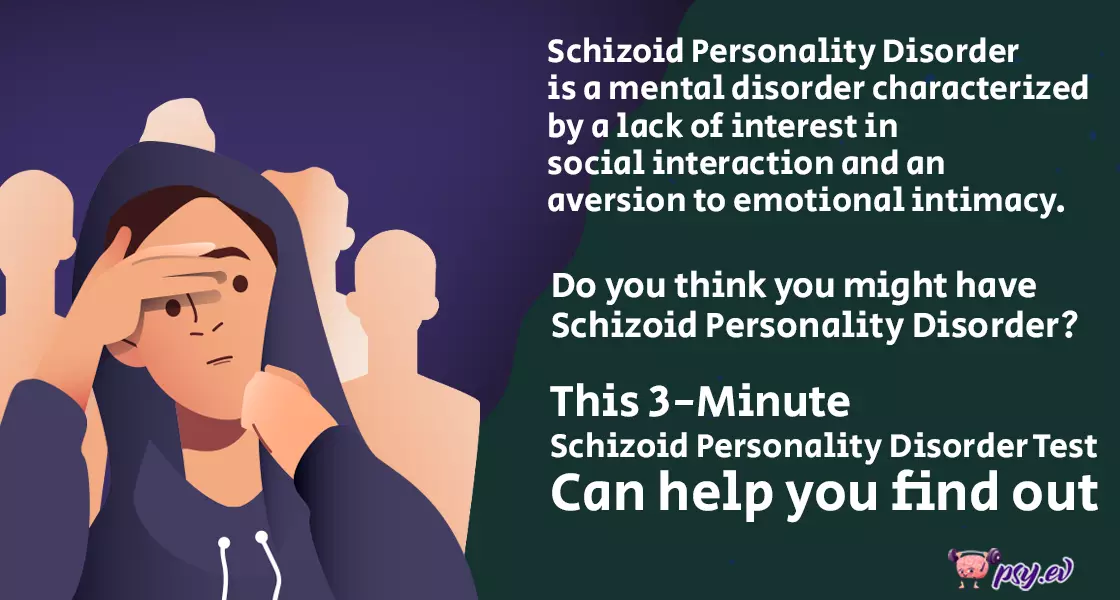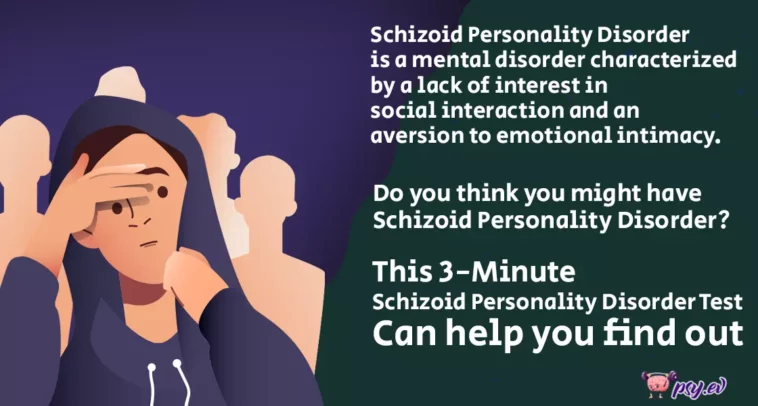Individuals dealing with schizoid personality disorder tend to avoid emotional closeness and display a lack of interest in social engagement. You will be asked several questions below on the SzPD test concerning the possible manifestations of this condition.
After taking the test, you should see a qualified professional for further diagnosis. The test is based on a well-known and accepted assessment for schizoid personality disorder. However, only a medical professional can give a definitive answer.
Schizoid Personality Disorder Signs and Causes
People with schizoid personality disorders have ingrained thoughts and behavior patterns that are different from what society views as normal. Their personality's rigidity can be quite upsetting and interfere with many aspects of daily life, including how well they perform in social and professional settings.
The signs of schizoid personality disorder include a struggle to build relationships. Additionally, people suffering from this disorder find it difficult to seek help because they find it difficult to accept the problems they are going through.
The symptoms are persistent, long-lasting thinking, responding, and interacting patterns. These untreated tendencies make it difficult for individuals to cope with their day-to-day activities.
On the other hand, they also have little to no interest in engaging in sexual behavior with others. Additionally, they typically don’t appreciate sensory and physical activities. Schizoid personality disorder makes it difficult for sufferers to form deep connections with others.
It is believed that genes contribute to the emergence of schizoid personality disorder. Those who have schizotypal personality disorder or s
chizophrenia in their families may be more likely to suffer from this illness. Moreover, a schizoid personality disorder may emerge as a result of having childhood caretakers who were emotionally distant, uncaring, and unempathetic.
Other possible causes may include head or brain injuries, malnourishment before birth, viral exposure, sickness exposure, or alcohol or drug abuse. If your symptoms match the ones mentioned, take the schizoid personality disorder test and then seek a professional’s assistance to start a thorough examination.
What to Do Next?
You may get a sense of how much you might fit the tendencies for schizoid personality disorder by taking the IPIP schizoid personality screening test. Once you get the test results, you should collaborate with a qualified doctor for further help. Schizoid personality disorder patients appear to have little interest in close friendships and prefer solitude.
Doctors diagnose schizoid personality disorder using specific symptoms, such as emotional reserve and disinterest in social contacts. Therapy that emphasizes social skill development in cognitive-behavioral settings may be helpful for people with this condition.
A schizoid personality disorder may be treated using a variety of approaches, and these approaches can be quite successful. Treatment can be difficult for the therapist since building relationships with others is difficult for persons with schizoid personality disorder, and trust is a crucial part of therapy. Training in social skills is another crucial aspect of therapy.
It is uncommon to utilize medication to treat schizoid personality disorder itself. However, if the patient also has a related psychiatric condition, such as depression, medication may be recommended.
Use the findings to determine whether you need to consult a doctor or other mental health specialist to learn more about schizoid personality disorder's diagnosis and potential treatments.


